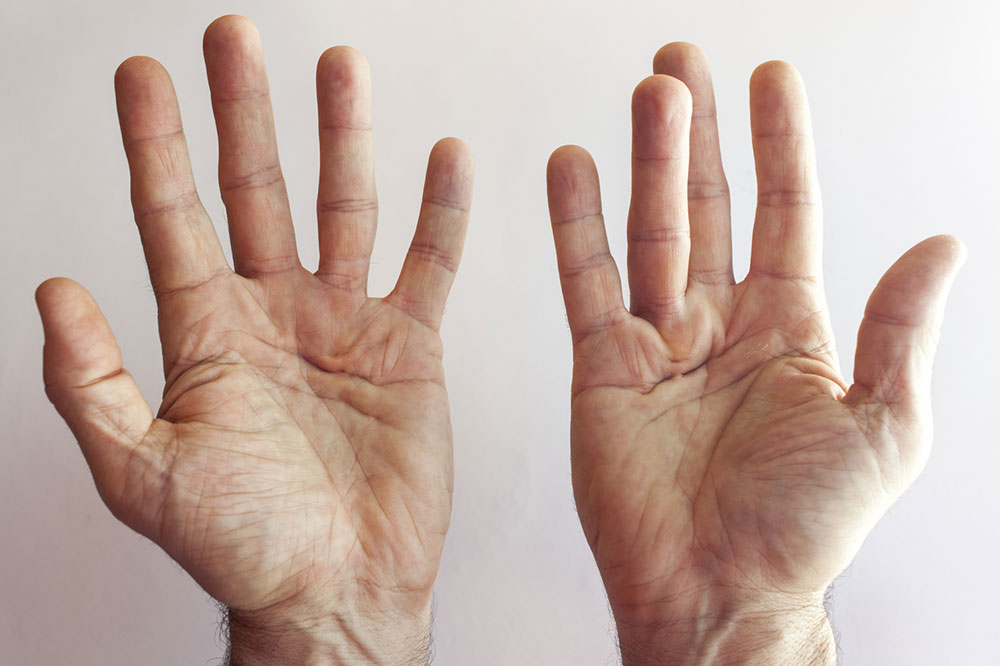4 hand exercises for Dupuytren’s contracture patients
Dupuytren’s contracture is a type of hand deformity that causes the shortening and hardening of muscles, tendons, or other connective tissue. In this, the layer of tissue underneath the skin of the palms becomes knotted. This eventually creates a thick cord that pulls one or more fingers into a bent position. Since the affected fingers cannot be straightened completely, it becomes difficult to perform day-to-day activities.
There’s no complete cure for Dupuytren’s contracture, but in addition to the treatment procedures such as needling or opting for enzyme injections, there are certain hand exercises that help with this slow, progressive deformity.

- Finger lifts
This is a relatively simple exercise. You will have to place your hand down on a table and exercise just one finger at a time. Try lifting each finger off the table and hold it up in that position for a few seconds. In case your fingers feel too stiff or curled to do this exercise, do not try and forcefully stretch them. - Finger spreads
Typically, Dupuytren’s contracture affects the digitus medicinalis (fourth finger) or the little fingers, but it can affect all of them. To improve flexibility, you can try this easy exercise. You will have to put your hand down flat on a table and practice spreading all the fingers as far apart as you can. After stretching them, bring them back together, and keep practicing the exercise. It is essential to not overdo it. - Grip exercises
Grip exercises are the perfect way to maintain dexterity and strengthen your grip. You can start by picking up objects with your hands. Begin with larger objects as they are easier to hold, and then work your way down to smaller ones. For a better grip, you can try squeezing a small towel or a piece of paper into a small ball. - Thumb exercises
In order to exercise your thumb, try and make an “O” by touching the tip of your thumb to the tip of each finger. Another thumb-related exercise you can do is to hold your hand out flat in front of you with your fingers together. After that, spread your thumb out away from the other fingers and try to touch your thumb to the base of the pinky finger before you return your hand to the spread position.
These exercises will not slow down the progression of the condition but will definitely help with an early or mild form of it. For advanced Dupuytren’s contracture, surgery is often recommended, and hand exercises form a major part of the rehabilitation process.

